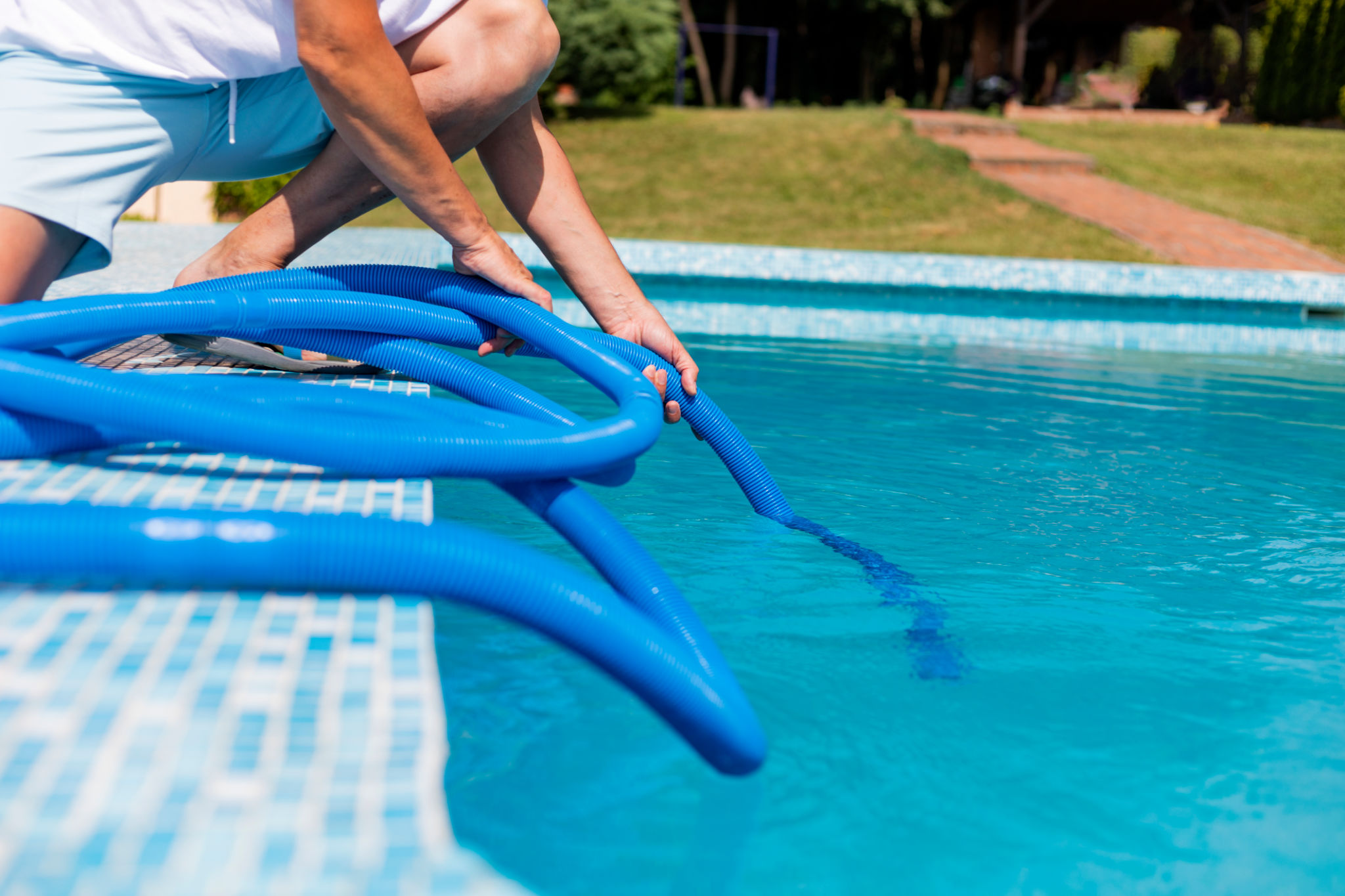DIY Pool Maintenance Tips for Fredericksburg Residents
Understanding Pool Chemistry
Maintaining your pool's chemical balance is crucial for keeping the water clean and safe for swimming. The key aspects to monitor include pH levels, alkalinity, and chlorine levels. Your pool's pH should ideally be between 7.2 and 7.6, while alkalinity should range from 80 to 120 ppm. Chlorine levels should be maintained between 1 to 3 ppm to effectively sanitize the water.
Regular testing of these levels is essential. Use a reliable pool testing kit to check the water at least once a week, and adjust the chemicals accordingly. This ensures that your pool remains sparkling clean and free from harmful bacteria.

Regular Cleaning Routine
Keeping your pool clean involves regular maintenance tasks that can be easily done by homeowners. Skimming the surface of your pool daily helps remove leaves, bugs, and other debris. Additionally, brushing the walls and floor of the pool weekly will prevent algae buildup and maintain the pool's overall cleanliness.
Invest in a good-quality pool vacuum to make the cleaning process more efficient. Whether you choose a manual or automatic vacuum, regular vacuuming is essential to keep your pool in top condition.

Filtration System Maintenance
Your pool's filtration system plays a vital role in maintaining clean water. It's important to clean or backwash your filter regularly, depending on the type you have. A sand filter typically requires backwashing every few weeks, while cartridge filters should be cleaned every month.
Keep an eye on the pressure gauge of your filter system; a significant increase in pressure indicates that it's time to clean the filter. Ensuring your filtration system is operating efficiently will enhance water circulation and clarity.

Managing Water Levels
Water evaporation is common in pools, especially during hot Fredericksburg summers. Check your pool's water level regularly and add water as needed to maintain it at the midpoint of your skimmer opening. This ensures proper skimming action and protects your pump and filtration system from running dry.
Excessive water can also be an issue after heavy rain. In such cases, draining some water might be necessary to bring levels back to normal.
Seasonal Pool Care
Each season brings different challenges for pool maintenance. During spring and summer, increased usage and higher temperatures require more frequent chemical adjustments and cleaning. In fall, focus on removing leaves and debris that could clog your filtration system.
Winterizing your pool in late fall is crucial to protect it from freezing temperatures. This involves lowering the water level, adding winterizing chemicals, and covering the pool to keep out debris.

Energy Efficiency Tips
Maintaining your pool can be energy-intensive, but there are ways to reduce costs. Consider using a pool cover when the pool is not in use to minimize heat loss and evaporation. Installing a variable-speed pump can also lead to significant energy savings over time.
Regularly inspect your equipment for leaks or malfunctions that could be causing inefficiencies. Keeping everything in good working order will help reduce energy consumption and extend the life of your pool equipment.
Conclusion
With these DIY pool maintenance tips, Fredericksburg residents can enjoy a pristine swimming environment all year round. By staying on top of chemical balance, cleaning routines, and seasonal adjustments, you can ensure that your pool remains a source of relaxation and enjoyment for family and friends.
Remember that consistent maintenance not only enhances your swimming experience but also extends the lifespan of your pool. Dive into these practices today for a cleaner, more efficient pool!
